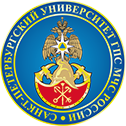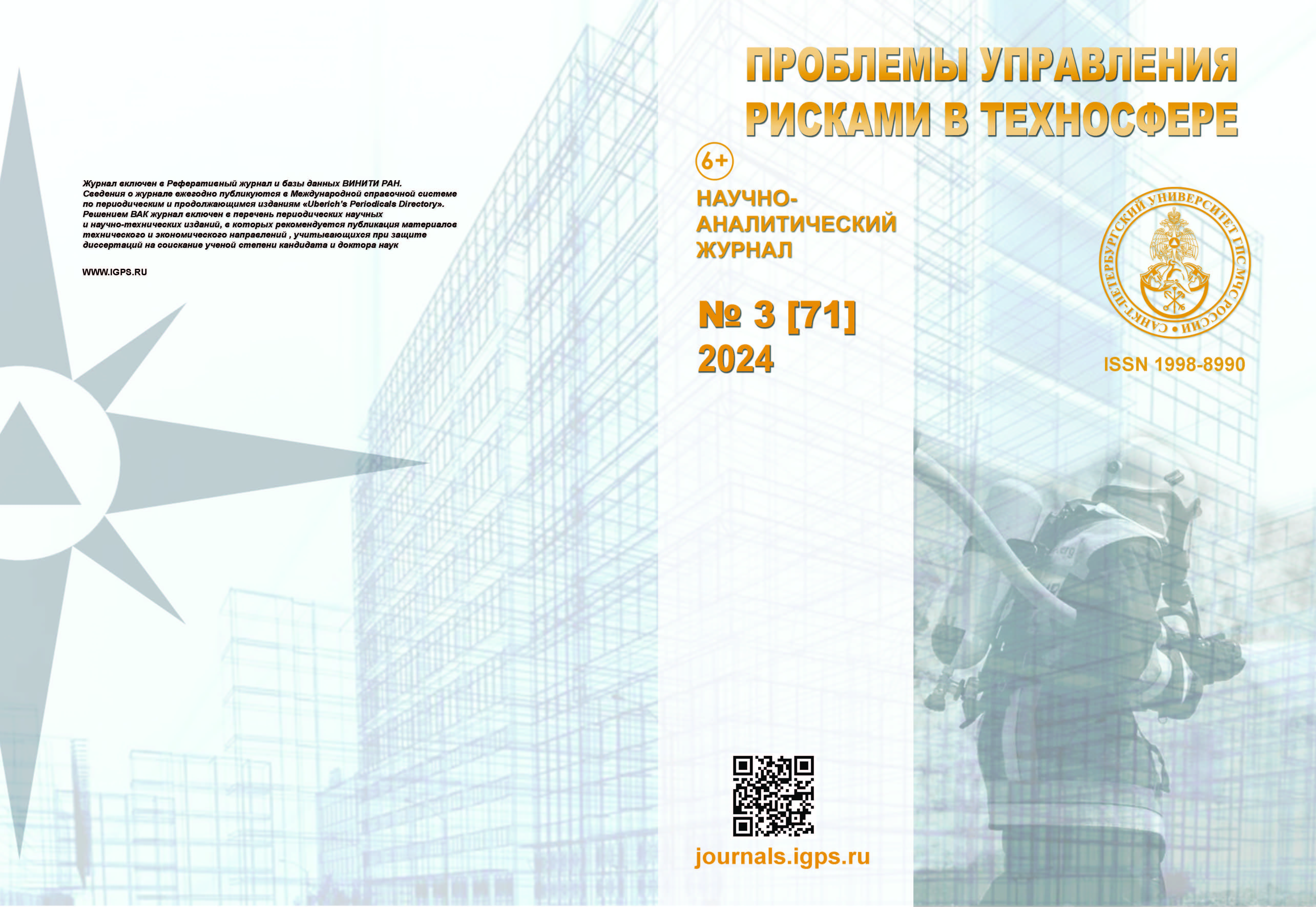Russian Federation
Russian Federation
Russian Federation
Russian Federation
The integration of innovative in form and content-based information technologies into national security operations has led to significant achievements, the creation of safer communities and more effective emergency response mechanisms. At the same time, the threats posed by the technologies of the information age further actualize the problem of understanding the urgent tasks of ensuring national security. These circumstances required generalization and concretization of concepts used in the field of security at the systemic level, clarification of the composition of the basic, system-forming types of national security of the Russian Federation and the links between them. Based on the principles of a systematic approach to the study of complex objects, which include the national security system of the Russian Federation, the article substantiates the permanent importance of fire safety and the increasing role of information security in ensuring the totality of types of national security.
security, fire safety, information security, national security, national security system
1. Lapidus L.V. Evolyuciya cifrovoj ekonomiki // Lomonosovskie chteniya – 2018. Sekciya ekonomicheskih nauk. Cifrovaya ekonomika: chelovek, tekhnologii, instituty: sb. tezisov vystuplenij. M.: Ekonomicheskij fakul'tet MGU im. M.V. Lomonosova, 2018. S. 153–158.
2. Klaus Shvab, Nikolas Devis. M.: Eksmo, 2018. 320 s.
3. Kateryna Bondar. Challenges and Opportunities of Industry 4.0 – Spanish Experience // International Journal of Innovation, Management and Technology. 2018. № 5. S. 202–208.
4. Shestakova I.G. Novaya temporal'nost' cifrovoj civilizacii: budushchee uzhe nastupilo // Nauchno-tekhnicheskie vedomosti SPbGPU. Gumanitarnye i obshchestvennye nauki. 2019. T. 10. № 2. S. 20–29. DOI:https://doi.org/10.18721/JHSS.10202.
5. Dubrovin E.R., Dubrovin I.R. Sovremennaya sistema nacional'noj bezopasnosti Rossijskoj Federacii. URL: https://topwar.ru/159640-sovremennaja-sistema-nacionalnoj-bezopasnosti-rossijskoj-federacii-i-ee.html (data obrashcheniya: 18.06.2024).
6. Theoretical and methodological substantiation of the structure of the state national security system / M.Yu. Zelenkov [et al.]. LAPLAGE EM REVISTA 2021. № 7 (3B). P. 421–437. DOI:https://doi.org/10.24115/S2446-6220202173B1569p.421-437.
7. Aktual'nye kiberugrozy: itogi 2022 goda. URL: https://www.ptsecurity.com/ru-ru/research/analytics/cybersecurity-threatscape-2022/ (data obrashcheniya: 18.06.2024).
8. Sineshchuk Yu.I. Kiberprostranstvo i kiberbezopasnost': sistemologicheskij analiz bazovyh ponyatij // Regional'naya informatika (RI–2018): materialy XVI Mezhdunar. konf. SPb., 2018. S. 168–170.
9. Chobanyan V.A., Shahalov I.Yu. Analysis and synthesis of the requirements for safety systems of objects of critical information infrastructure // Issues of cybersecurity. 2013. № 1 (1). P. 7–27.
10. Peter W. Singer and Allan Friedman. Cybersecurity and Cyberwar: What Everyone Needs to Know. Oxford University Press, 2014.
11. Sineshchuk Yu.I. Informacionnaya bezopasnost' predpriyatiya v usloviyah cifrovoj transformacii // Nauchnye trudy Severo-Zapadnogo instituta upravleniya RANHiGS. 2022. T. 13. № 2 (54). S. 125–131.
12. Kirikova A., Arbuzova A. VUCA, BANI i SHIVA: bukvy, ob"yasnyayushchie mir. URL: https://trends.rbc.ru/trends/futurology/62866fde9a794701a4c38ae4 (data obrashcheniya 18.06.2024).
13. Aspekty tekhnosfernoj bezopasnosti v koncepcii sistemy nacional'noj bezopasnosti / Yu.I. Sineshchuk [i dr.] // Problemy upravleniya riskami v tekhnosfere. 2024. № 2 (70). S. 8–19. DOI:https://doi.org/10.61260/1998-8990-2024-2-8-19.
14. Sineshchuk Yu.I. Informacionnaya bezopasnost' v sisteme nacional'noj bezopasnosti // Regional'naya informatika i informacionnaya bezopasnost': sb. Statej S.-Peterb. Mezhdunar. i mezhreg. konf. 2018. S. 167–170.
15. Sineshchuk M.Yu., Shestakov A.V., Gavkalyuk B.V. Infologicheskaya model' i kriterii kachestva reshenij po postroeniyu vedomstvennyh organizacionno-tekhnicheskih sistem klassa «kiberpoligon» // Nauch.-analit. zhurn. «Vestnik S.-Peterb. un-ta GPS MCHS Rossii». 2023. № 1. S. 121–137.
16. Miloslavskaya N., Tolstoy A. Cyber polygon site project in the framework of the MEPhI network security intelligence center // Brain-Inspired Cognitive Architectures for Artificial Intelligence: BICA* AI 2020: Proceedings of the 11th Annual Meeting of the BICA Society 11. Springer International Publishing. 2021. P. 295–308.
17. Andreev A.S., Ivancov A.M. Opyt primeneniya kompleksov (poligonov) v oblasti obespecheniya informacionnoj bezopasnosti // Informacionnoe protivodejstvie ugrozam terrorizma. 2015. T. 1. № 25. S. 15–17.
18. Analiz obstanovki s pozharami i ih posledstviyami na territorii Rossijskoj Federacii za 12 mesyacev 2022 g. URL: https://xn--d1afzn.xn--p1ai/files/306/analiz-dnpr-2022.pdf (data obrashcheniya: 12.06.2024).
19. Soldatov R., Perevoshchikova M. Stena ot ognya: v RF usilyat pozharnyj nadzor za kriticheskoj infrastrukturoj. URL: https://iz.ru/1531907/roman-soldatov-mariia-perevoshchikova/stena-ot-ognia-v-rf-usiliat-pozharnyi-nadzor-za-kriticheskoi-infrastrukturoi (data obrashcheniya: 12.06.2024).
20. Zareckij A.D. Pozharnaya bezopasnost' kak sostavnaya chast' strategii nacional'noj bezopasnosti Rossii // Nacional'nye interesy: prioritety i bezopasnost'. 2010. № 1 (58). S. 74–77.
21. Kapranova Yu.V., Ovsepyan G.M. Pozharnaya bezopasnost' v sisteme nacional'noj bezopasnosti: otdel'nye aspekty zakonodatel'nogo regulirovaniya // Yuriskonsul't v stroitel'stve. 2021. № 12. S. 38–42.
22. Sineshchuk Yu.I., Teryohin S.N., Shidlovskij G.L. Pravovoe obosnovanie roli i mesta pozharnoj bezopasnosti v obespechenii informacionnoj bezopasnosti // Informacionnaya bezopasnost' regionov Rossii (IBRR-2023). XIII S.-Peterb. mezhreg. konf.: materialy konf. SPb.: SPOISU, 2023. S. 50–51.







